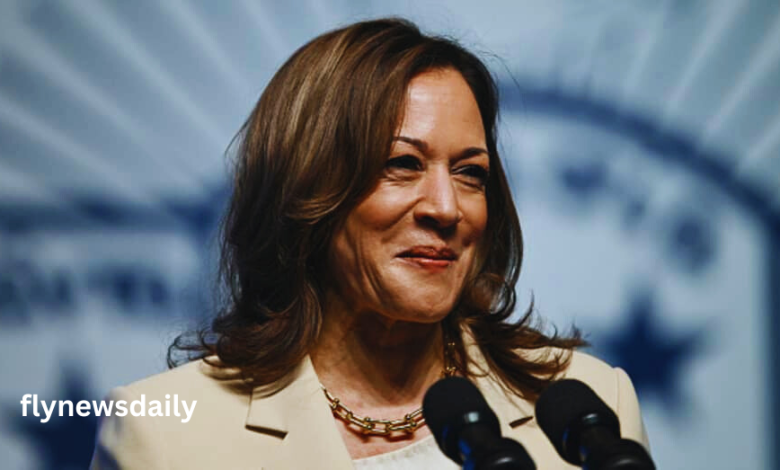
Navigating the world of politics can often feel like treading through a complex labyrinth, but when it comes to Kamala Harris, her influence resonates far beyond political boundaries. For businesses and entrepreneurs seeking to understand the evolving landscape of policies and economic frameworks, Kamala Harris offers a wealth of insights. This post explores her political ascent, her impact on business policies, and why her leadership style is one to watch closely in the business community.
Introduction to Kamala Harris
Kamala Harris, the first female Vice President of the United States, has had a storied career marked by significant milestones. Born in Oakland, California, Harris was raised in a multicultural environment with an Indian mother and Jamaican father. She carved her path through education at Howard University and the University of California, Hastings College of the Law, which eventually led her to a career in law enforcement and politics.
Harris’s political trajectory began as the District Attorney of San Francisco, where she made waves with her progressive policies. Her tenure as California’s Attorney General further solidified her reputation as a formidable force in politics. Eventually, she became a U.S. Senator, representing California, before ascending to the Vice Presidency in 2021. Her diverse background and political experience make her a unique figure whose decisions resonate across various sectors, especially business.
The significance of Kamala Harris to the business world cannot be understated. Her position as Vice President places her at the forefront of economic decision-making, trade negotiations, and business regulations. Understanding her background provides insight into her potential influence on business policies and the broader economic landscape.
Kamala Harris’s Impact on Business
Kamala Harris‘s impact on the business sector is multifaceted, stemming from her policy initiatives and decisions that have direct implications for the economy. One of her notable contributions is her advocacy for small businesses. Recognizing their role as the backbone of the economy, Harris has supported measures to provide relief and assistance to small enterprises, particularly during challenging times like the COVID-19 pandemic.
In addition to supporting small businesses, Harris has championed initiatives aimed at increasing diversity and inclusion in the corporate world. She has consistently advocated for policies that promote gender and racial equity in business environments, making it a priority to dismantle systemic barriers that hinder progress for minority-owned businesses.
Beyond these measures, Harris’s focus on sustainability and green energy has implications for businesses across various industries. Her support for transitioning to cleaner energy solutions and investing in green technology signals a shift towards sustainable business practices, encouraging companies to adapt and innovate in response to changing environmental standards.
Personal Traits and Leadership Style
Kamala Harris’s leadership style is characterized by her resilience, determination, and ability to connect with people across different backgrounds. These personal traits have not only propelled her to high office but also influence her approach to governance, including decisions that affect the business community.
One of Harris’s notable qualities is her ability to communicate effectively and empathetically. She has a knack for addressing complex issues with clarity and compassion, making her a relatable figure to business leaders and citizens alike. This ability to connect on a personal level helps foster trust and collaboration, essential elements in the world of business.
Another key aspect of Harris’s leadership is her strategic thinking. She has demonstrated a capacity to analyze challenges from multiple angles, considering both immediate and long-term impacts. This strategic mindset enables her to craft policies that balance economic growth with social responsibility, a crucial consideration for businesses looking to thrive in a rapidly changing world.
Harris’s commitment to justice and equity also shapes her leadership style. Her focus on creating a fair and inclusive society aligns with the values of many businesses seeking to build diverse and equitable workplaces. By championing these principles, Harris sets an example for business leaders to follow, encouraging them to prioritize ethics and social responsibility in their operations.
Harris’s Economic and Trade Policies
Kamala Harris’s views on economic development and trade are integral to understanding her influence on the business sector. Her economic policies emphasize the importance of innovation, sustainability, and equitable growth, which have significant implications for businesses across the board.
One of Harris’s key priorities is fostering innovation and technological advancement. She recognizes the role of emerging technologies in driving economic growth and has supported initiatives to encourage research and development. This focus on innovation presents opportunities for businesses to leverage new technologies and remain competitive in the global market.
In the realm of trade, Harris advocates for fair and reciprocal trade agreements that protect American interests while promoting international collaboration. Her stance on trade emphasizes the need for balanced agreements that benefit both domestic businesses and global partners. This approach seeks to create a level playing field for businesses, ensuring they have access to international markets while safeguarding domestic industries.
Sustainability is another core element of Harris’s economic policies. She has championed efforts to transition to a low-carbon economy, advocating for investments in renewable energy and green infrastructure. This commitment to sustainability encourages businesses to adopt environmentally friendly practices, aligning with global trends towards corporate social responsibility.
Business Community’s Response to Harris
The business community’s response to Kamala Harris has been varied, reflecting the diverse perspectives and priorities of different industries. Many business leaders welcome her commitment to supporting small businesses and fostering innovation, recognizing the potential benefits these policies offer for economic growth and job creation.
Some business leaders have expressed optimism about Harris’s focus on diversity and inclusion, viewing it as an opportunity to enhance workplace culture and attract top talent. By prioritizing equity and social responsibility, businesses can align themselves with changing consumer expectations and societal values.
However, there are also concerns within the business community about the potential impact of certain policies, such as increased regulations or higher taxes on corporations. These concerns highlight the need for ongoing dialogue and collaboration between policymakers and business leaders to ensure that policies strike a balance between economic growth and social equity.
Overall, Kamala Harris’s leadership presents opportunities and challenges for the business community. Her policies emphasize the importance of innovation, sustainability, and inclusivity, encouraging businesses to adapt and thrive in a changing landscape.
Conclusion
Kamala Harris’s influence on the business world is undeniable, with her policies and leadership style shaping the future of commerce and industry. Her commitment to innovation, diversity, and sustainability aligns with the values of many businesses seeking to thrive in a rapidly evolving global economy.
For business professionals and organizations looking to integrate these principles into their operations, Kamala Harris offers valuable insights and inspiration. Her focus on equitable growth and strategic innovation provides a framework for businesses to build resilient and socially responsible enterprises.
In conclusion, Kamala Harris stands as a beacon of change and progress, guiding businesses towards a future that values both economic success and social responsibility. For those eager to explore more about her policies and engage with her vision, there are ample resources and opportunities to get involved and contribute to a brighter, more equitable future.



